Data governance tools and software are essential for big data analytics: they help enterprises cultivate the right data sets for extracting useful details and insights. Data governance software makes high quality, accurate data available and reduces useless information in enterprise storage systems and applications. Jump to: What is Data Governance? What are Data Governance Tools? […]


Data governance tools and software are essential for big data analytics: they help enterprises cultivate the right data sets for extracting useful details and insights. Data governance software makes high quality, accurate data available and reduces useless information in enterprise storage systems and applications.
Jump to:
Data governance is the procedure, or collection of procedures, that keeps data clean, high quality, and relevant. Governing data properly includes:
Data governance tools or software perform the management tasks above through a consolidated digital platform. They make governance simpler by automatically sorting data and notifying administrators of potential threats or duplicate copies of data. Data governance tools often use intelligent technologies, including AI and machine learning, to automate data management and consolidation.
Data governance tools typically integrate with other software, such as customer management platforms like Salesforce and public cloud platforms like AWS or Azure. Large organizations may require data governance roles, like a chief data officer on the executive team or data owners who oversee data quality and accuracy.
Also Read: Top Data Governance Trends & Technology 2021
Because data governance is a form of management for important and sensitive information, it’s especially crucial for big data. When that data needs to be analyzed and business insights extracted, companies will receive the best information from closely governed and cleaned data. Governance tools and software:
Best for enterprises with experienced Java developers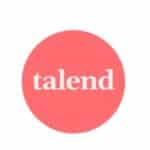
Talend Data Fabric is an open-source, comprehensive governance and data management solution hosted on AWS or Azure. The solution includes seven different applications, including Talend Management Console, Talend Data Inventory, and Talend API Tester. All seven can be installed on AWS or Azure, and some can be installed in a hybrid environment.
Running Talend Data Fabric as hybrid infrastructure (both cloud and on-premises) requires the Talend Studio development to be installed on an enterprise’s premises. Talend is ideal for Java businesses and offers free and paid premium versions. An online community allows customers to discuss Talend’s products with other users.
Key Differentiators:
Con:
Because Talend is heavily Java-based, organizations that don’t have Java-experienced developers or IT staff may not benefit from its variety of features.
Also Read: What is a Data Fabric?
Best for enterprises with experienced developers and time to customize data governance platforms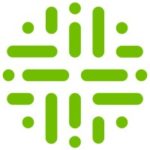
Collibra is a popular data governance platform that belongs to Collibra’s Data Intelligence Cloud. Its Data Helpdesk allows users to submit a ticket if they locate incorrect data, reporting it to the enterprise. The solution allows customers to create divisions within the business and scope customizations for only their division.
Collibra is extremely customizable. This flexibility is ideal for large enterprises that have time and team members to dig into the software and customize it to their specific needs. This also makes it a difficult solution for smaller businesses that don’t have the time or experience to tailor Collibra for their company’s needs. Users advised that new buyers make themselves familiar with Collibra’s operating model or create a setup plan before implementing the platform.
Key Differentiators:
Cons:
Best for companies that require a master data management and data quality solution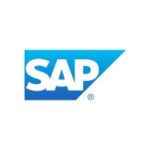
SAP Master Data Governance caters to large enterprises with other SAP solutions, but it also integrates well with non-SAP tools and data. This makes SAP a strong choice for businesses that require management for either data in existing SAP applications or enterprise data that resides elsewhere. Available on premises or in a private cloud, SAP’s focus on master data makes it unique on this list.
SAP MDG integrates with SAP ERP in particular, as well as other SAP software. It offers duplicate data identification and reduction, consolidation and cleansing, and quality management.
Key Differentiators:
Cons:
Best for large enterprises that need a suite of data management solutions 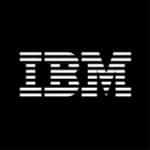
IBM InfoSphere Optim is a suite of data analytics and management products for enterprise data protection, archival, and improved governance. These seven products include multiple options for testing data, including Optim Test Data Management for extracting data from databases and other sources and testing software. IBM also provides Test Data Fabrication, which offers the ability to create synthetic data for test scenarios. It’s a less risky option than using your company’s sensitive active data. Optim users can view how accurate the results of the fabrication process are.
Another highlight of the Optim platform is a data and application archival and lifecycle solution. Archive, for managing archived data in databases, handles growth and scaling. Enterprises may use Archive for both retiring legacy applications and archiving structured data. Archive also helps manage data lifecycles.
Key Differentiators:
Con:
Some users found the software complex to implement, learn, and understand.
Best for geographically dispersed companies that handle a lot of documents
Egnyte is a cloud-based file management and governance solution for businesses that need to access documents securely and remotely. It’s particularly useful for geographically dispersed organizations, including ones with international employees. Enterprises can classify data that’s subject to regulatory compliance. Along with large-file collaboration and secure remote work products, Egnyte offers governance solutions specifically designed for Microsoft 365 and Google Workspace, too.
Egnyte’s suite of file management products offer features like document sharing, including with users outside the organization. Administrators can geographically restrict users, forbidding access to the service based on country, and can rank external sharing issues with a severity level, marking their potential risk. Notably, the platform notifies admins when a user behaves uncharacteristically, a method of protecting sensitive files from theft.
Key Differentiators:
Con:
Egnyte, though a comprehensive file management solution, isn’t suited for large enterprises that need large-scale governance for all of their big data operations.
Best for businesses that want to empower their business users to regularly access governed and trusted data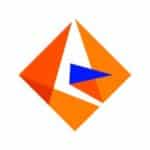
Cloud and data vendor Informatica offers Axon Data Governance as well as data products that include governance features. Axon offers a variety of data management features, including data quality visibility. One standout feature that Axon offers is its Data Marketplace portal, whichshows sets of data approved by the governance team and restricted to users who have been given access. It also integrates with Informatica Intelligent Cloud Services. If users have permission to view the data, they can immediately order it, as Axon’s data sheet says.
Customers have been pleased by how readily the customer success and product management teams receive their feedback, as well as satisfied by the quick support response from the Global Customer Support team.
Key Differentiators:
Cons:
Because data governance tools focus on different aspects of data management, purchasing a tool requires a business’s executive team to know exactly what its data requires. This includes:
Read Next: Top Big Data Tools & Software 2021


Jenna Phipps is a staff writer for Enterprise Storage Forum and eSecurity Planet, where she covers data storage, cybersecurity and the top software and hardware solutions in the storage industry. She’s also written about containerization and data management. Previously, she wrote for Webopedia. Jenna has a bachelor's degree in writing and lives in middle Tennessee.

Enterprise Storage Forum offers practical information on data storage and protection from several different perspectives: hardware, software, on-premises services and cloud services. It also includes storage security and deep looks into various storage technologies, including object storage and modern parallel file systems. ESF is an ideal website for enterprise storage admins, CTOs and storage architects to reference in order to stay informed about the latest products, services and trends in the storage industry.
Property of TechnologyAdvice. © 2026 TechnologyAdvice. All Rights Reserved
Advertiser Disclosure: Some of the products that appear on this site are from companies from which TechnologyAdvice receives compensation. This compensation may impact how and where products appear on this site including, for example, the order in which they appear. TechnologyAdvice does not include all companies or all types of products available in the marketplace.